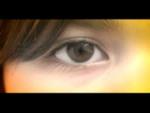-
Do You Care About People More Than God?
Contributed by Jay Winters on Nov 28, 2017 (message contributor)
Summary: This was a tough text to preach on. When I went to read what early church fathers had written or preached about this text, I found that it was skipped by almost everyone from Chrysostom to Augustine. So, where angels fear to tread....here goes a fool for
In the name of the Father, and of the Son, and of the Holy Spirit, the Holy Three In One who cares more than we could ever imagine.
Dear Brothers and Sisters in Christ,
30 to 150 baby boys in the vicinity of Jerusalem died. 30 to 150 little boys were taken away from their mothers in this text. An ultimate picture of the evil and ugliness that humans can display.
The quotation of the prophet seems to imply that Herod drew a circle around Jerusalem, five miles to the north in Rabah, and five miles to the south in Bethlehem, the burial place of Rachael. Any child two years old or younger was doomed to death and destruction.
In the movie, Hotel Rwanda, based on a true story from the Rwandan civil war and genocide, Paul Russebegina played by Don Cheadle goes and makes a deal with the leader of the genocidal Interahamwe militia to get more supplies for his hotel where he is hiding refugees. The deal goes fine, but this leader then tells Paul to go home a different way. It’s foggy and early in the morning when they are going back. Suddenly, the van they are riding in starts to bump and lurch. Assuming that it must be a flat tire or something of that effect, the van stops and Paul gets out.
What he sees before him is what seems like a mile of dead bodies, a highway filled with death and destruction.
It is the kind of scene that makes us ask “Why God?” It is the kind of scene that fills us with such terror and disgust that we almost throw up. But if we’re asking the question “Why God?” then we have to come to realize in this text that “Why God?” is the wrong question.
In order to put ourselves in the place to ask “Why God?” at some level we have to put ourselves into the place of God. We have to look at the scene of 150 children put to death by Herod’s order. We have to look at the scenes of genocide in Rwanda and Darfur. We have to look at the thousands of children who will be killed today because nobody cared enough to talk to an unwed mother who is just seeking a way out, and that way out looks like abortion to her.
In order to ask that question we really have to first ask ourselves, “Do I care more about people than God?” It’s a question we ask often. We ask it of ourselves when things go wrong in our lives. We ask it when we experience pain. We ask it when the world seems to be falling apart.
If we’re honest though, we see the roots of these behaviors in our lives. Do we really care more than God? If we did, then why do we try to horde our positions and possessions like Herod? Do we really care more than God? If we did, then how could human history be filled with people who hate other people just because their skin is a little different than ours? Do we really care more than God? Then why are we more apt to not speak to someone who is Muslim than someone who is an atheist?
We see these roots in our lives and we have to own up to them. The ancient church called these roots a special name, the logismoi, the roots of sin in our thoughts. We may not have behaved as badly as Herod. We may not have acted on our impulses to hurt, maim, and kill. But they have been there. Those roots have been there. Those roots of evil made even the Son of God Himself have to flee to a foreign land to find shelter.
No, this story is no glowing recommendation for saving humanity. In fact, if we truly were God overseeing this scene, we would probably wash humanity away in that very moment.
But this text shows us something new in God. This text shows us not how little God cares, but an apparent move to His care expanding, His love growing. Up to this time in Matthew’s Gospel EVERYTHING has been about coming to save Israel. All of the prophecies have been looking to the salvation of Israel through a promised Messiah. Up until this time everything has been about someone other than you.
But now in this text, God turns His eyes to all of humanity. God looks at all of humanity in its ugliness and sinfulness and instead of destroying it all because of the great and heinous display of sin on Herod’s part, He saves the only way that He can save humanity.
This time it is different. This time it goes out to all of the people of the world, not just to Israel. This time it goes to Egypt. This time is goes to even the historic enemies of Israel. God has saved His Son, for a slaughter of the innocent that will instead of cursing humanity – will free humanity.

 Sermon Central
Sermon Central



